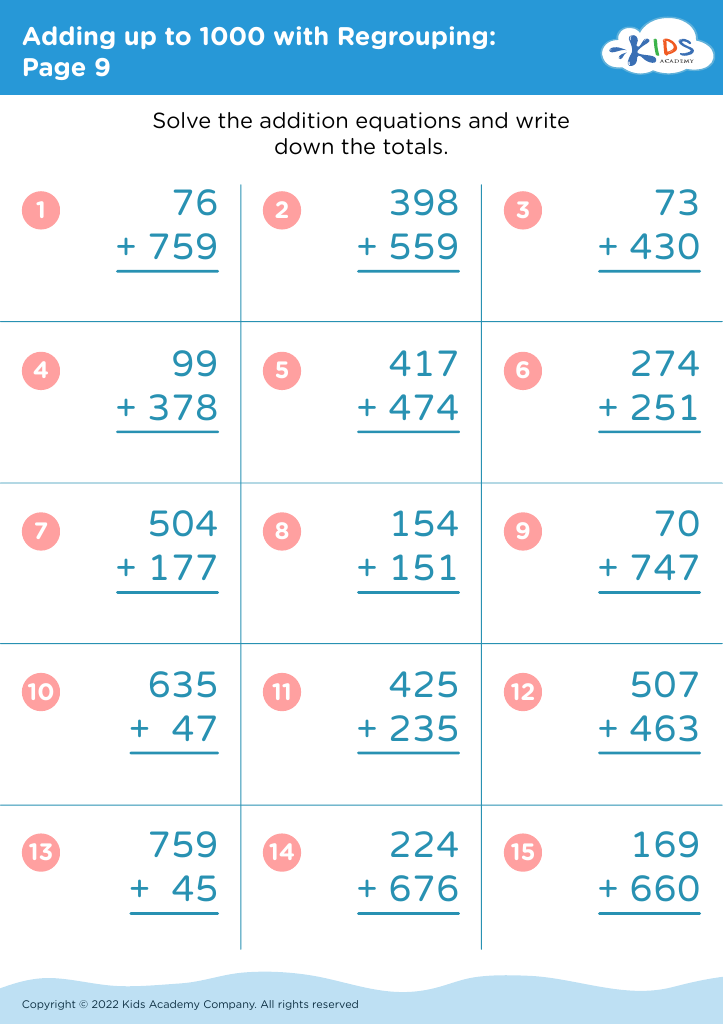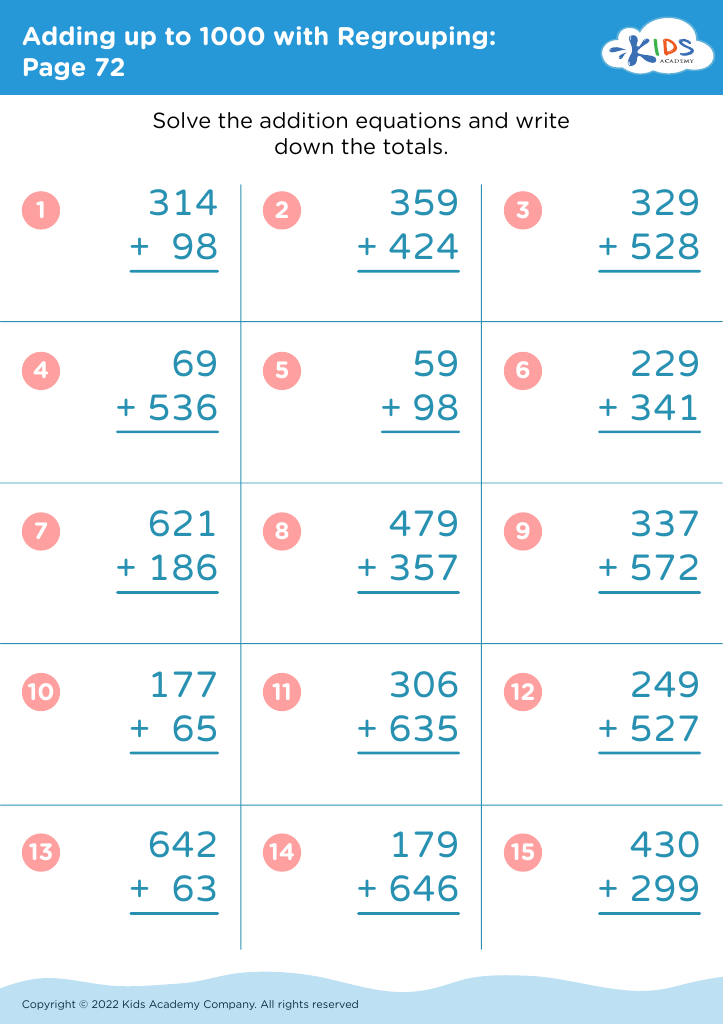Understanding directions Addition Worksheets for Ages 4-8
3 filtered results
-
From - To
Our "Understanding Directions Addition Worksheets for Ages 4-8" are expertly designed to help young learners master basic addition while enhancing their directional skills. These engaging worksheets not only teach addition through fun exercises but also require kids to follow and comprehend directions, strengthening their cognitive abilities. Perfect for classroom and home use, these activities blend math proficiency with critical thinking, making learning enjoyable and effective. Featuring colorful illustrations and age-appropriate challenges, these worksheets aim to build confidence and foundational skills essential for future math success. Spark excitement in math with our engaging directional addition worksheets!
Understanding directions and learning addition are foundational skills for children aged 4-8 that play critical roles in their overall development. First and foremost, mastering directions—such as learning left from right, up from down, and front from back—helps children navigate their physical environment safely and confidently. This directional awareness is not only essential for everyday tasks but also forms the base for more complex skills like reading maps and understanding spatial relationships in subjects like geometry.
In the same vein, addition is a key mathematical skill that supports cognitive development and logical thinking. Early proficiency in addition helps children grasp the concept of quantity, understand the relationship between numbers, and build a strong foundation for more advanced math skills, such as subtraction and multiplication. Besides this, mathematics gives children real-world problem-solving abilities that are useful throughout their lives; for example, figuring out how many apples you need if you already have a few in your basket.
Moreover, understanding directions and addition teaches patience, precision, and persistence—qualities that benefit personal growth beyond academic achievements. When parents and teachers invest time in teaching these skills, they're setting up children not only for academic success but for practical life skills that enhance their overall capability and confidence.







.jpg)











